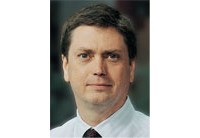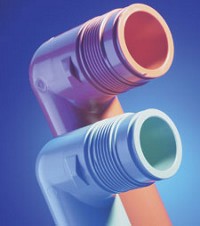Advertisement
Grab your lab coat. Let's get started
Welcome!
Welcome!
Create an account below to get 6 C&EN articles per month, receive newsletters and more - all free.
It seems this is your first time logging in online. Please enter the following information to continue.
As an ACS member you automatically get access to this site. All we need is few more details to create your reading experience.
Not you? Sign in with a different account.
Not you? Sign in with a different account.
ERROR 1
ERROR 1
ERROR 2
ERROR 2
ERROR 2
ERROR 2
ERROR 2
Password and Confirm password must match.
If you have an ACS member number, please enter it here so we can link this account to your membership. (optional)
ERROR 2
ACS values your privacy. By submitting your information, you are gaining access to C&EN and subscribing to our weekly newsletter. We use the information you provide to make your reading experience better, and we will never sell your data to third party members.
Business
Compounding Problems
Makers of plastic compounds feel squeezed between high costs and stalled selling prices
by Marc S. Reisch
February 4, 2008
| A version of this story appeared in
Volume 86, Issue 5

Chemical makers have had a difficult time during the past two years passing on increases in the price of raw materials. But some of their customers—companies that act as the middlemen between chemical producers and end users—have really been caught in a bind.
Take, for instance, companies that make and distribute plastic compounds. Firms such as A. Schulman, Spartech, and PolyOne buy resins from Dow Chemical, Eastman Chemical, and others. They blend the resins with additives, fillers, and pigments and then sell them to customers that mold detergent bottles or make plastic toys. Owing in part to their vulnerable position in the supply chain, these firms have had a particularly hard time passing price increases to customers.
"Pricing is always more difficult the closer you are to the end customer," explains John E. Roberts, a chemical stock analyst at Buckingham Research Group. Middlemen like plastic compounders "are caught between a rock and a hard place, between OPEC and Wal-Mart, which rarely raises its prices," he says.
Financial results bear this out. Schulman's net income in its fiscal year that ended Aug. 31, 2007, slipped more than 30% to $23 million on sales of $1.8 billion. The firm did a little better in the first quarter of its new fiscal year, earning $10 million on revenues of $496 million, but it still netted only a 2% return on sales. In its last fiscal year ending Nov. 3, 2007, Spartech earned $34 million, 13% less than the year before, on sales of about $1.4 billion.
PolyOne, meanwhile, reported net income of just $4 million on sales of $2 billion for the nine months ending on Sept. 30, 2007. The results were held back by special charges, such as more than $60 million for environmental remediation costs. However, the firm reports lower operating income and continued weakness in its vinyl compounds business, its largest business unit, accounting for about one-third of 2007 sales.
The difficult profit picture is forcing change at compounding firms. Spartech brought in Myles Odaniell as its new president and chief executive officer at the beginning of this year to lead a turnaround charge. After a bruising fight with shareholders, Schulman also has a new CEO and a 100-day plan to improve profitability. And PolyOne has divested its 24% interest in the OxyVinyls polyvinyl chloride joint venture to partner Occidental Chemical and has beefed up emphasis on its specialty compounds operations.
Odaniell tells C&EN that Spartech has had to deal with "steady and substantial feedstock cost increases" while it fell behind in its ability to increase prices to customers. And "clearly, the company's recent financial performance has been disappointing," he says. But "given time, we'll be able to catch up."
He says he'll spend time assessing how Spartech organizes itself and hints at possible consolidation moves in the future. "We have to be sure we have the right people and the right capacity," Odaniell says. To grow and build the North Americanfocused firm for the long term, he says, he'll look at opportunities in Asia. And he hopes to push the firm further into unique high-margin products with a renewed emphasis on research and development.
At Schulman, Joseph M. Gingo joined the firm as CEO in January and then promptly lost his initial bid for a seat on the company's board of directors. Ramius Capital Group, an activist investor that owns 7.6% of Schulman stock, succeeded in placing its own nominee on the board in an effort to force management to explore strategic alternatives, including a possible sale of the firm. Schulman, like its competitors, has had problems increasing prices to customers to keep pace with the rising costs of raw materials.
Gingo, now a member of the newly expanded board, says he is committed to a 100-day plan that will return North American operations to profitability, increase profits in Europe and Asia, reduce costs, and broaden the company's customer base beyond automotive markets.
As for PolyOne, Stephen D. Newlin, who joined the firm as chairman, president, and CEO in February 2006, recently told investors at a meeting in New York City that he'll be looking to prune unprofitable businesses, improve inventory controls to save $50 million, and focus more effort on specialty products such as thermoplastic elastomers.
In its still-important vinyl business, Newlin said, PolyOne would penetrate specialty niches to improve performance. But he can do little more than wait for better conditions in the building and construction market, a heavy user of vinyl windows and moldings. When that market does rebound, he said, PolyOne's vinyl business will be well-positioned to benefit.
Squeezed between rising raw material costs and customers unwilling to accept price increases, plastic compounders are doing what they can to stabilize profits in a difficult environment. But until raw material prices come down, these middlemen will have a challenging time satisfying investors.




Join the conversation
Contact the reporter
Submit a Letter to the Editor for publication
Engage with us on Twitter